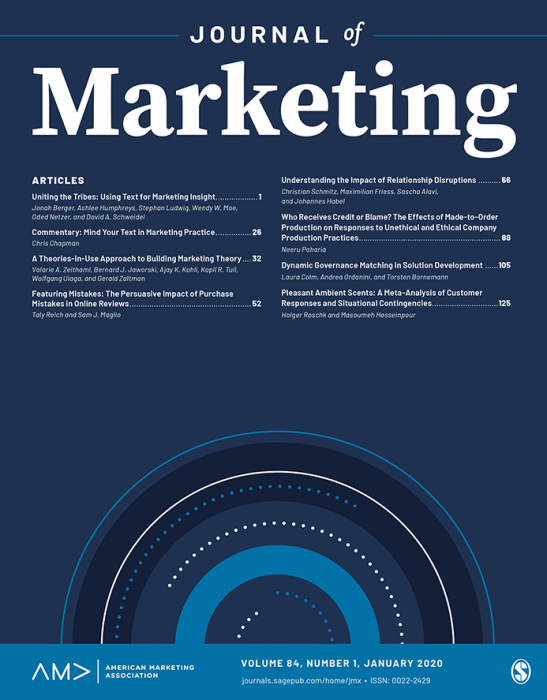EXPRESS: Owners’ Willingness to Accept in the Sharing Economy
IF 10.4
1区 管理学
Q1 BUSINESS
引用次数: 0
Abstract
The sharing economy has become an increasingly widespread way for peers to rent out their owned goods to others seeking to rent them. This research investigates how providers (i.e., owners renting out their belongings) decide what price to charge, and identifies the快车:共享经济下车主的接受意愿
共享经济已经成为一种越来越普遍的方式,人们将自己的物品出租给其他想要出租的人。本研究调查了供应商(即所有者出租其财产)如何决定收取什么价格,并确定了供应商WTA效应,其中在点对点(P2P)协作消费模式的背景下,供应商愿意接受(WTA)低于租户(即非所有者)愿意支付(WTP)。这些发现与之前的研究不同,之前的研究一再表明,在卖方/买方交易中,所有者通常要求比非所有者愿意支付的费用更高(即禀赋效应)。提供者WTA效应的解释是,提供者有一个更容易接近的同理心透镜,这反过来又会在出租物品时抑制他们的交换透镜的可及性。这使得WTA低于WTP。当租房者被确定为不同的交易伙伴时,这种影响会减弱。这项研究为供应商和平台提供了可行的建议。
本文章由计算机程序翻译,如有差异,请以英文原文为准。
求助全文
约1分钟内获得全文
求助全文
来源期刊

Journal of Marketing
BUSINESS-
CiteScore
24.10
自引率
5.40%
发文量
49
期刊介绍:
Founded in 1936,the Journal of Marketing (JM) serves as a premier outlet for substantive research in marketing. JM is dedicated to developing and disseminating knowledge about real-world marketing questions, catering to scholars, educators, managers, policy makers, consumers, and other global societal stakeholders. Over the years,JM has played a crucial role in shaping the content and boundaries of the marketing discipline.
 求助内容:
求助内容: 应助结果提醒方式:
应助结果提醒方式:


